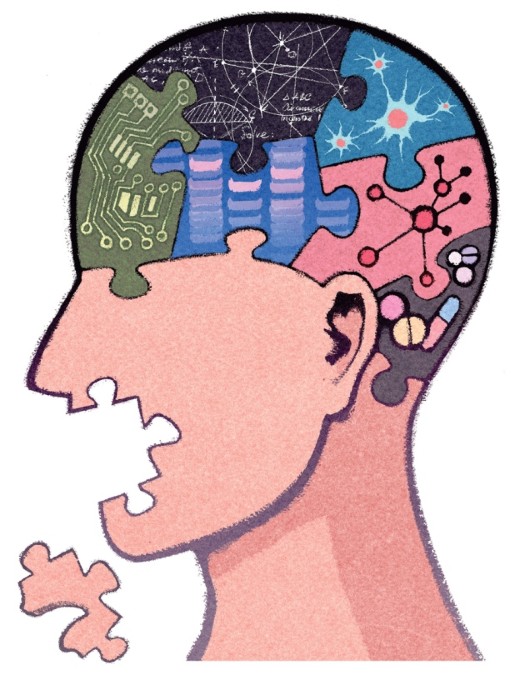Comprehensive Inpatient Mental Health Solutions for Effective Therapy
Inpatient mental health solutions stand for a vital element of the health care system, giving a extensive and organized setting for individuals experiencing serious emotional distress. Discovering the subtleties of this continuum exposes considerable ramifications for both individual recuperation and more comprehensive psychological health end results.
Recognizing Inpatient Mental Wellness Solutions
Inpatient psychological health and wellness solutions supply essential support for people experiencing severe emotional distress that can not be managed efficiently in an outpatient setting. These services are designed to provide an intensive level of treatment in a structured atmosphere, commonly within a medical facility or specialized facility. People confessed to inpatient programs normally display severe signs, such as suicidal ideation, severe anxiety, or psychosis, demanding continuous monitoring and treatment.
The admission procedure normally includes a comprehensive evaluation by psychological health and wellness specialists, who evaluate the person's mental state, history, and immediate demands. When admitted, individuals participate in a selection of restorative techniques customized to their certain needs, including drug monitoring, individual treatment, and team sessions. This alternative approach aims to maintain the patient's condition, promote safety, and foster coping skills.
Inpatient mental wellness solutions not only address instant health and wellness issues but additionally offer as a bridge to ongoing treatment. By giving a regulated setting, these solutions assist in the growth of treatment strategies that can be proceeded in outpatient settings, hence making sure a continuum of treatment and enhancing lasting outcomes for people with intricate mental wellness requirements.
Key Components of Effective Therapy
Effective therapy in inpatient psychological health and wellness solutions consists of numerous vital parts that foster healing and stablizing. A thorough assessment is vital to recognize the person's certain requirements and obstacles. This analysis notifies the development of a tailored therapy strategy, which works as a roadmap for intervention.
An additional crucial component is the multidisciplinary team method. Partnership amongst psychoanalysts, psychologists, registered nurses, and social employees makes certain that different point of views contribute to the person's care, improving the effectiveness of therapy. Evidence-based healing techniques, such as cognitive-behavioral treatment (CBT) and dialectical habits therapy (DBT), are also important, giving organized strategies that attend to maladaptive idea patterns and behavior concerns.
-(1).jpg?v=1722502701)
Finally, an emphasis on aftercare planning is critical to guarantee a smooth shift to outpatient services, reducing the danger of relapse and advertising long-lasting health. These collective parts create an effective treatment structure within inpatient mental wellness services.
Advantages of Comprehensive Care

Thorough care in inpatient mental wellness solutions supplies numerous benefits that dramatically boost person outcomes. Among the main benefits is the alternative technique to treatment, attending to not only the mental signs and symptoms but also the physical, social, and emotional demands of clients. This thorough evaluation enables customized interventions that promote total well-being.
Another advantage is the Read Full Report integration of multidisciplinary groups, which promotes partnership among healthcare experts. This joint atmosphere makes sure that people get coordinated care, minimizing the risk of fragmented treatment and improving interaction amongst caretakers. Thorough care helps with continuity of solutions, enabling for seamless transitions from inpatient to outpatient settings, which is vital for long-lasting recovery.

Lastly, the organized atmosphere of extensive inpatient treatment provides a risk-free room for clients to participate in restorative tasks, aiding them establish coping strategies and durability. Collectively, these benefits add to more effective therapy and improved lifestyle for individuals experiencing psychological wellness crises.
Evidence-Based Healing Techniques
In the world of mental health therapy, evidence-based healing methods play an important duty in making certain that clients obtain efficient and scientifically supported interventions. These approaches integrate the finest readily available research with scientific experience and patient values, cultivating a customized treatment experience that attends to individual demands.
Cognitive Behavioral Therapy (CBT) is just one of the Visit Website most extensively acknowledged evidence-based methods, focusing on identifying and changing negative thought patterns and actions. This organized technique has actually shown efficacy in dealing with problems such as clinical depression, stress and anxiety, and PTSD. Dialectical Habits Treatment (DBT) is particularly efficient for people with borderline character disorder, stressing the development of psychological policy and interpersonal efficiency abilities.
In addition, medication monitoring is typically an integral part of evidence-based therapy, as psychotropic medications can minimize signs and symptoms and improve overall performance. Collective care designs, which involve multidisciplinary groups, even more improve the efficacy of inpatient solutions by making sure thorough assessments and continuous tracking.
Inevitably, the combination of evidence-based restorative approaches not just promotes favorable medical outcomes but likewise equips patients, fostering a feeling of company and durability in their mental wellness journeys.
Transitioning to Outpatient Support
The transition from inpatient mental health and wellness solutions to outpatient assistance marks a critical stage in a patient's recuperation journey. This duration requires mindful planning and control to ensure continuity of care and to alleviate the threats of relapse or situation. Efficient discharge preparation need to commence early in the inpatient stay, involving a multidisciplinary team that includes psychoanalysts, psychologists, registered nurses, and social employees.
Secret elements of an effective change consist of the advancement of a thorough aftercare strategy tailored to the individual's specific demands. This strategy ought to lay out follow-up appointments, medication administration, and healing treatments, along with determine neighborhood resources and support teams that can facilitate ongoing recovery.
Furthermore, helpful resources individual and family members education is crucial during this phase. Comprehending the indications of possible troubles and the importance of adhering to therapy can empower individuals and their support systems.
Regular follow-up and review of the outpatient plan are important to deal with advancing difficulties. By cultivating a collaborative relationship in between outpatient and inpatient carriers, the chance of sustained recovery increases, ultimately enhancing the client's lifestyle and minimizing the threat of readmission.

Conclusion
In summary, comprehensive inpatient mental health services offer a vital structure for attending to serious mental distress with a multidisciplinary approach. By integrating evidence-based therapies, fostering an organized atmosphere, and promoting family members involvement, these services enhance therapy effectiveness. The emphasis on stability and the growth of coping abilities not only help in immediate healing yet additionally facilitates a smoother change to outpatient treatment. Inevitably, such detailed treatment is vital for long-term psychological wellness and wellness.
The admission procedure usually entails an extensive evaluation by mental health and wellness specialists, that evaluate the person's psychological state, background, and instant requirements.Reliable treatment in inpatient psychological wellness solutions consists of several essential parts that foster healing and stabilization.Comprehensive care in inpatient mental health services provides countless benefits that substantially improve individual results.The change from inpatient mental health and wellness services to outpatient assistance notes an essential phase in a patient's recuperation journey.In summary, thorough inpatient mental wellness services use an important structure for resolving severe emotional distress with a multidisciplinary strategy.